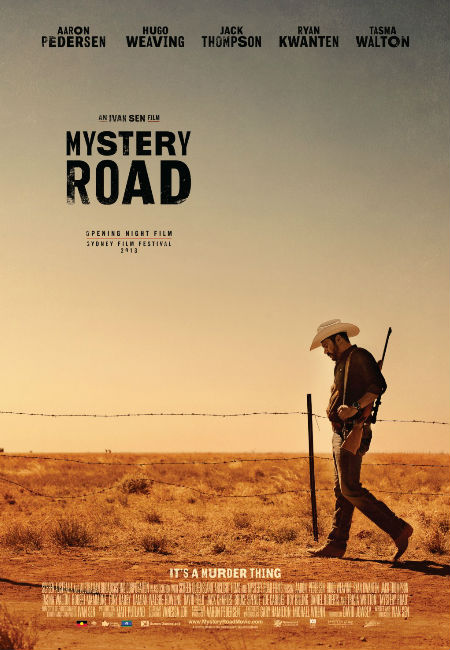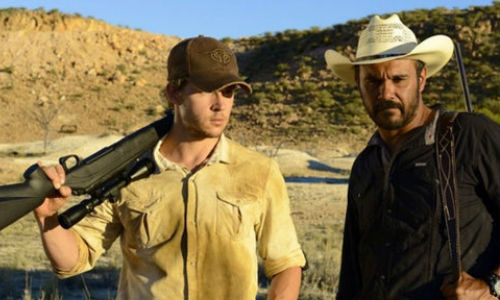
Upsetting the status quo is never an easy proposition for anyone but it becomes exponentially more challenging in the suffocatingly intense surrounds of a small town where everybody knows everyone and everything.
That’s the situation facing Jay Swan (Aaron Pederson), newly returned from detective school in the “Big Smoke”, who is faced with determining who murdered a young Indigenous girl, Julie Mason, found in a storm water drain by a passing road train truck driver.
Almost from the get go he is faced with almost malevolent indifference from his fellow officers who have their own interests to protect, local townspeople who are more concerned with self-medicating their pain away than seeing justice wrought, and a vast, dry and dusty environment that seems inimically opposed to any real progress by anyone who occupies it.
It is a town where a rusted on status quo prevails, long since devolved into inaction, lethargy and corruption, a world in which time passes slowly and everyone seems to have surrendered to the mercilessly cold hand of brutal reality.
A heady mix of film noir, Western and apocalyptically violent thriller, Mystery Road moves at a measured, almost motionless pace, its slowly unfolding narrative punctuated only by the starkly efficient conversations that Swan has with a series of reticent, unwilling to rock the boat locals whose fear of the power players in the shadows is palpable and debilitating.
Swan has to resort to bribing his fellow Indigenous community members, who only very loosely observe the once close familial bonds now ravaged by drug and alcohol abuse, to make any headway, with each painfully gleaned step forward almost immediately twisting back into two or three steps back.

It is tortuously demanding work but Swan perseveres, willing to butt heads with his fellow officers, including most notably Johnno (Hugo Weaving) whose connections to the drug dealers he is supposed to be policing are ambiguous at best, corrupt at worst, his former wife Mary (Tasma Walton) whose parenting of their daughter Crystal is mired in alcohol-soaked indifference, and a succession of towns folk such as Pete Smith (Pete Bailey) whose aggressive responses to every single enquiry made by Swan is emblematic of the town as a whole.
Quite why anyone would relentlessly plough on in such a situation is beyond reasoning but plough on Swan does, motivated to make a difference, although it is never clear if he’s a steel-eyed gritty idealist or a hardy life weary pragmatist unwilling to let the bastards get the better of him.
In fact many of the characters in the film possess motives that are murky at best, lost in a sea of moral greys that make it hard to work out who, if anyone, is acting with any shades of noble intent.
The only one who emerges from this tale of justice stymied at every turn by a status quo so powerful it threatens to swallow anyone unlucky to be caught near it, is Swan but that is largely thanks to a rather violent ending which is almost cartoon-ish in execution.
It’s not quite the finish you would expect from a movie that up to that point has been possessed of a single minded determination to tell its story in slow, deliberate terms, eschewing obvious narrative momentum for a sense of time, place and foreboding instead.
It really is more of the sort of film that you feel and experience more than intellectually process, its progression the result of a series of intensely executed scenes which rely more on what is not expressed, emotionally and otherwise, than what is.
Mystery Road, written and directed by Ivan Sen (Toomelah, 2011) has a great deal to recommend it – fine performances by Pederson, Walton and Weaving among others, a taut script that never lets a word too many get used and the sort of stunning aerial cinematography that establishes a sense of place with a visual elegance that is breathtaking at times.
It is not the sort of film that filmgoers who prefer a neat, conventionally arrived at conclusion and cleanly delineated characters will appreciate but if you’re the sort of person who can embrace infinitesimally-graded nuance, morally ambiguous characters and real-life and real-time outcomes, then Mystery Road is a rare immersive experience that you will disappear into, much like the people who populate it.